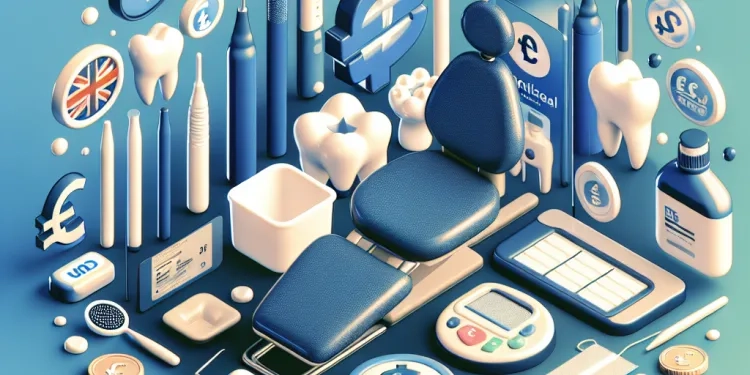
Find Help
More Items From Ergsy search
-
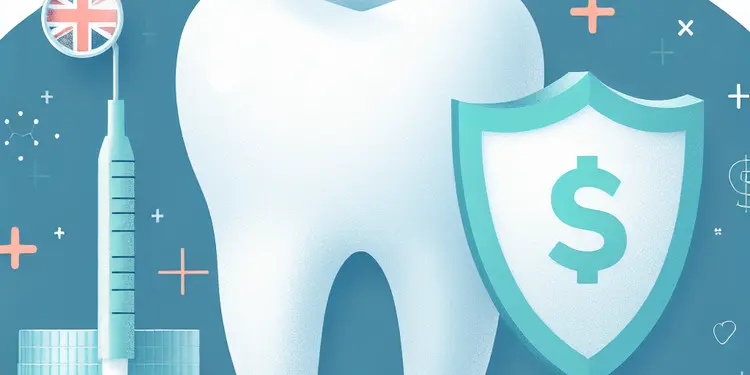
What treatments are covered by the NHS dental services?
Relevance: 100%
-

What treatments are covered by the NHS dental service?
Relevance: 94%
-
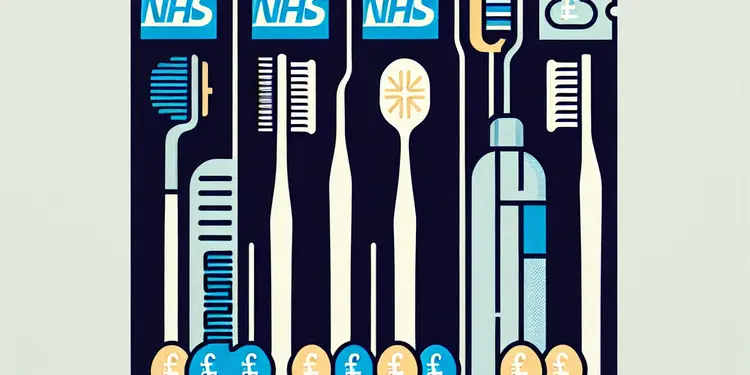
Are there waiting lists for NHS dental treatment?
Relevance: 82%
-
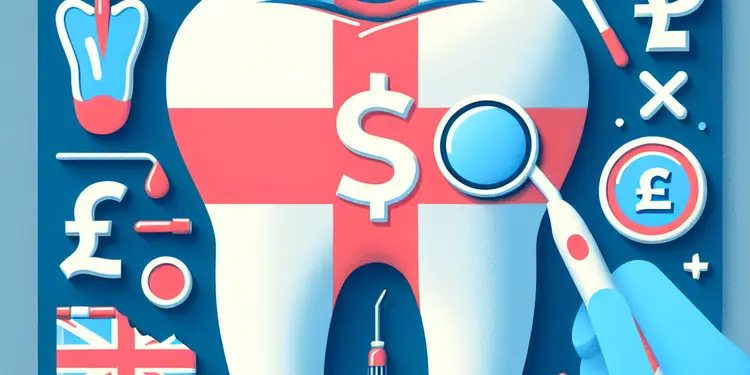
What if I'm not satisfied with my NHS dental treatment?
Relevance: 81%
-
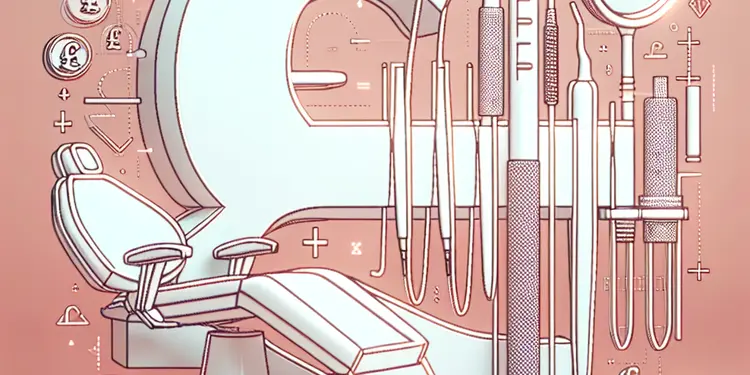
Can I use private dental services if I'm on the NHS list?
Relevance: 80%
-
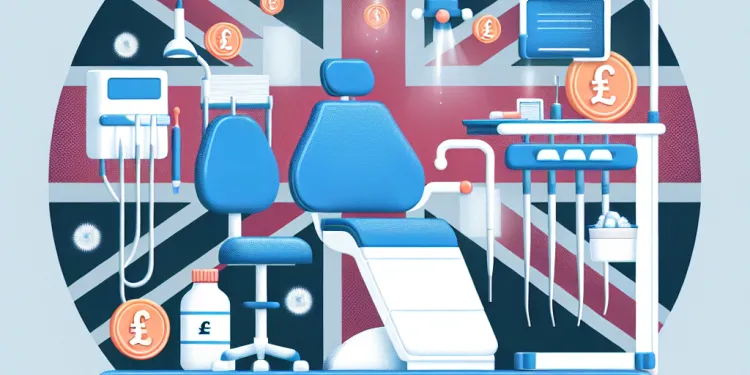
Will Brexit affect my access to NHS dental treatments?
Relevance: 80%
-
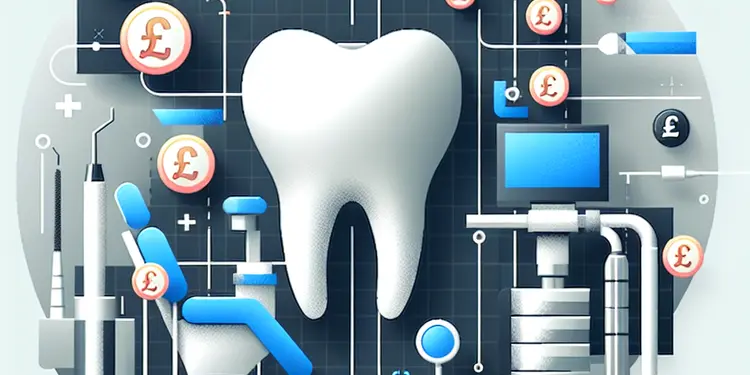
Can I get cosmetic dental treatment on the NHS?
Relevance: 77%
-

Are there any extra charges for NHS dental treatments?
Relevance: 76%
-
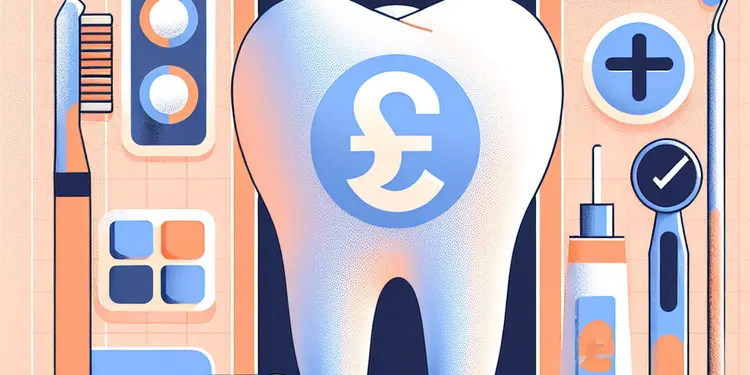
How much will I have to pay for NHS dental treatment?
Relevance: 73%
-

Is sedation available during NHS dental treatments?
Relevance: 69%
-

Are NHS dental charges different across the UK?
Relevance: 65%
-
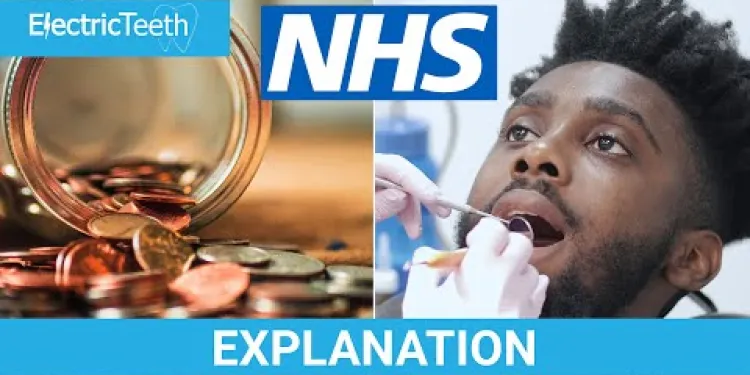
NHS Dental Charges Explained
Relevance: 63%
-

Are all dental appointments free on the NHS?
Relevance: 62%
-

Can I get an emergency NHS dental appointment?
Relevance: 62%
-
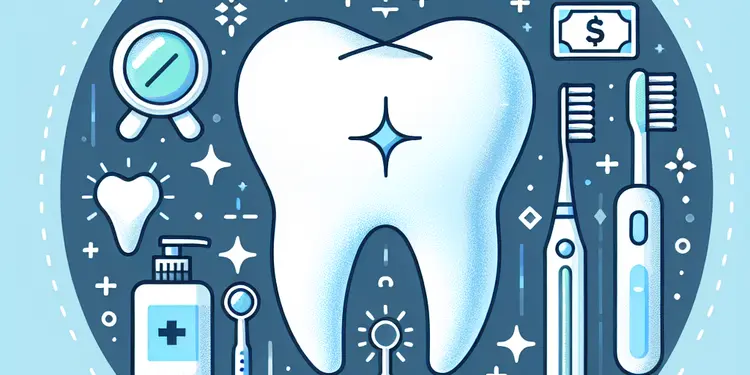
How do I choose the right dental clinic in Turkey?
Relevance: 61%
-
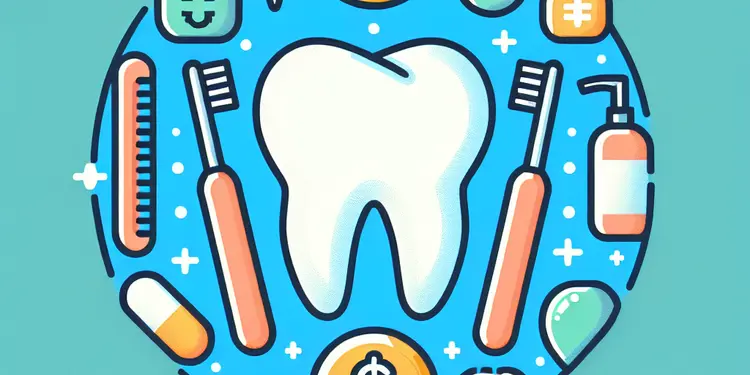
What if I need urgent dental care?
Relevance: 60%
-
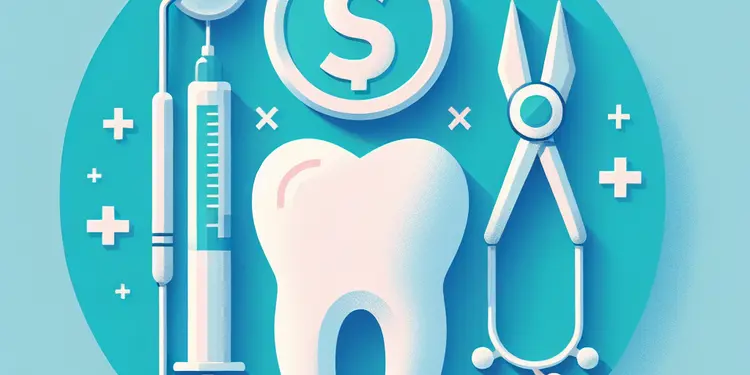
Do I need to be a registered patient to get emergency NHS dental care?
Relevance: 60%
-
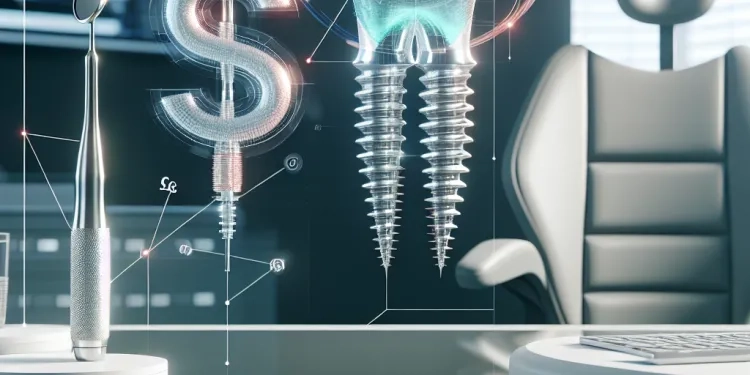
Can I get dental implants on the NHS?
Relevance: 59%
-
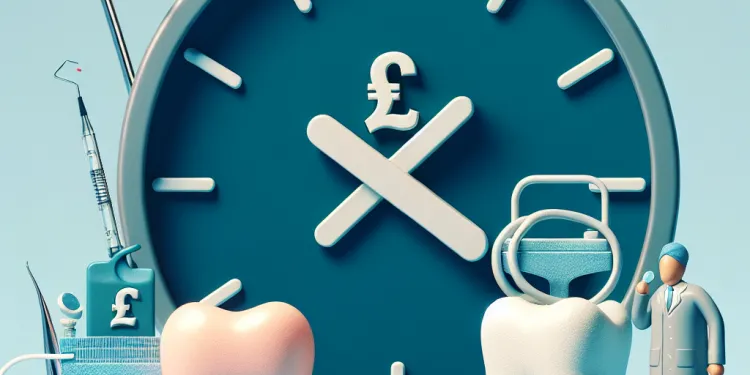
How long will I have to wait for an NHS dental appointment?
Relevance: 59%
-
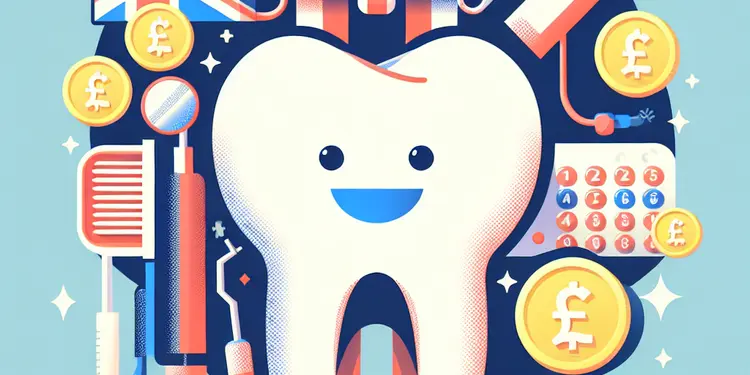
Can children get free NHS dental care?
Relevance: 57%
-

Is it safe to get dental work done in Turkey?
Relevance: 56%
-
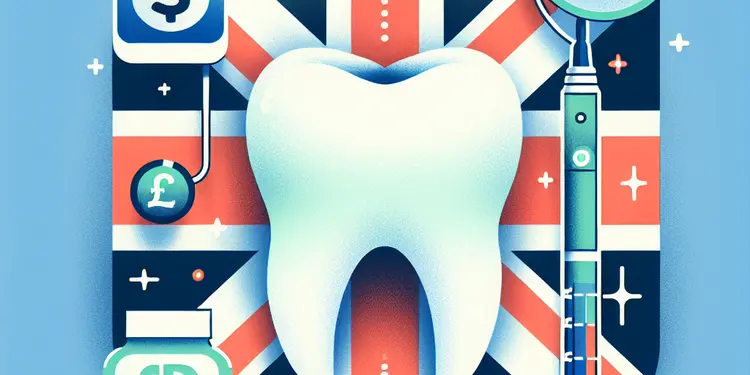
What languages do NHS dental clinics typically support?
Relevance: 56%
-
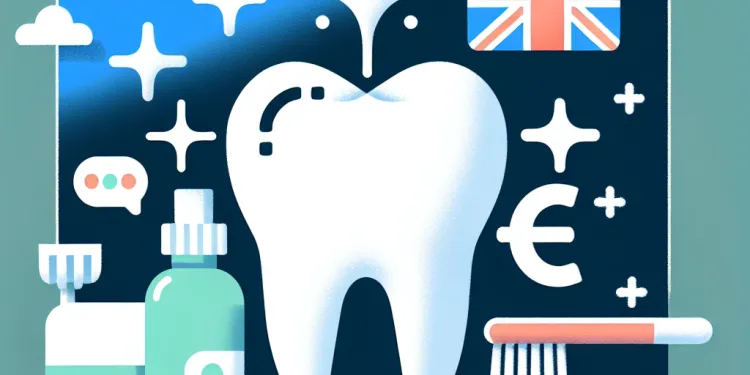
How do I know if I'm eligible for free NHS dental care?
Relevance: 54%
-
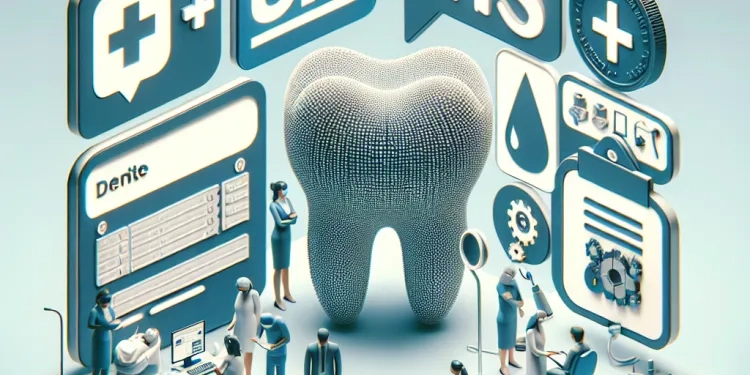
What happens if I miss my NHS dental appointment?
Relevance: 54%
-

Do NHS dentists cover cosmetic treatments?
Relevance: 54%
-

How often should I have a dental check-up on the NHS?
Relevance: 53%
-
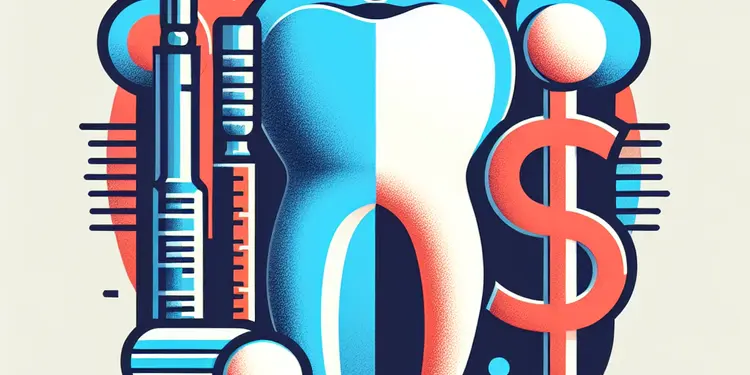
What is the role of dental sealants in preventing tooth decay?
Relevance: 53%
-
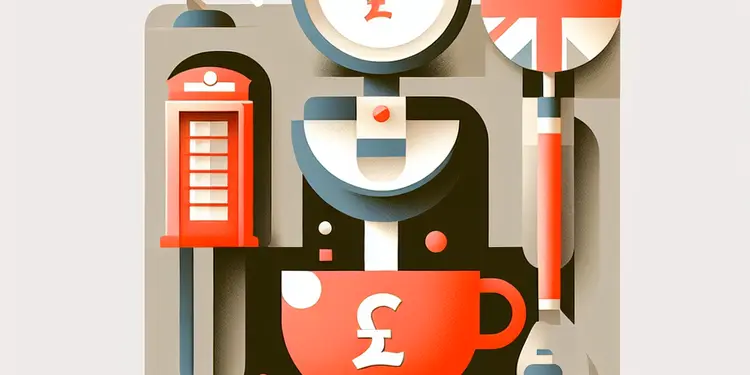
How can I provide feedback about my NHS dental care?
Relevance: 52%
-
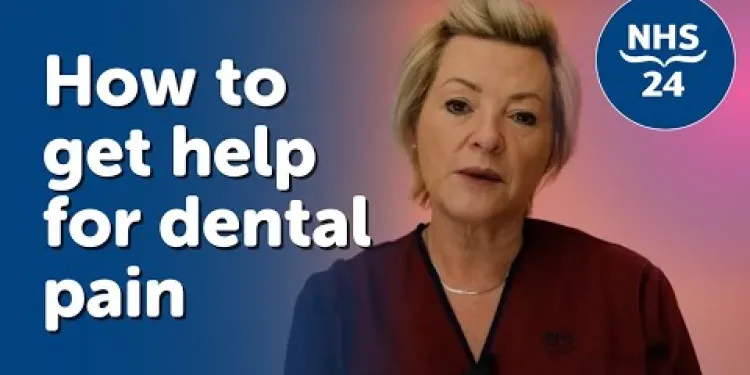
NHS 24 | How to get help for dental pain
Relevance: 52%
-
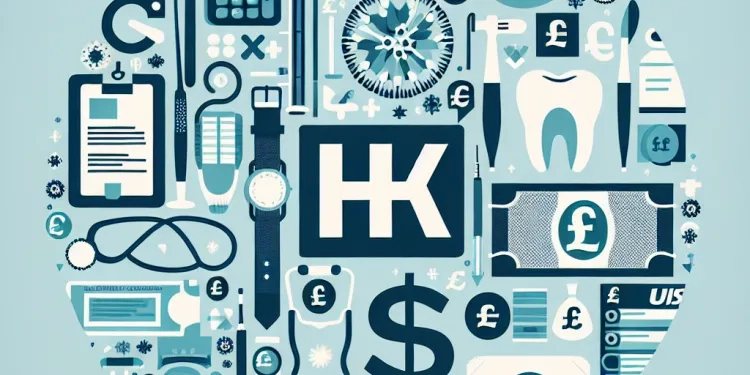
What should I bring to my NHS dental appointment?
Relevance: 51%
-
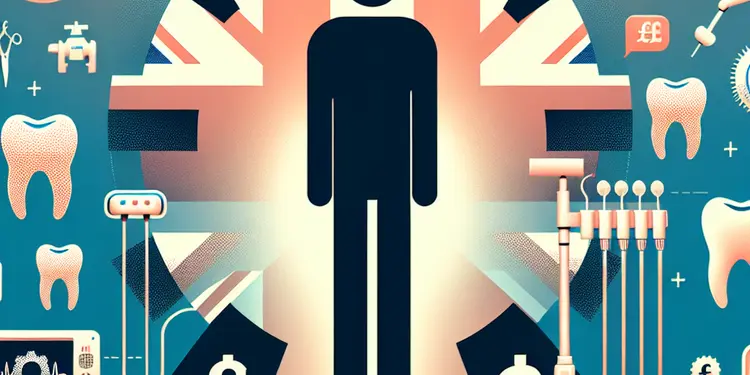
How do I know if my dentist offers NHS treatment?
Relevance: 51%
-
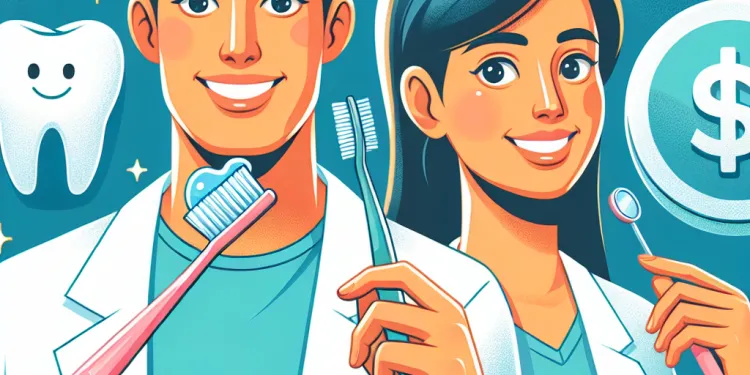
Dental Health: Tips for All Ages
Relevance: 50%
-

How are health services provided in prison?
Relevance: 49%
-
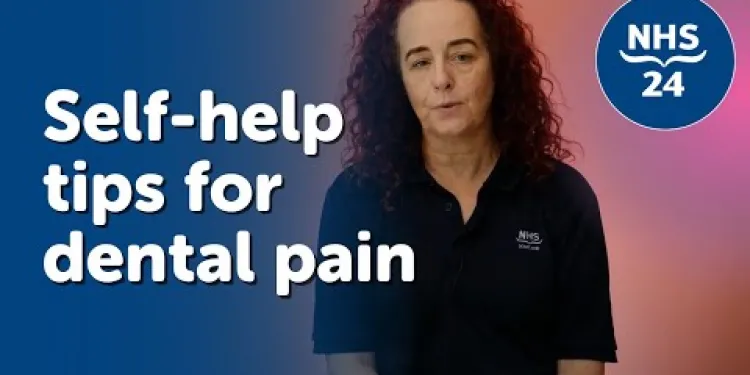
NHS 24 | Self-help tips for dental pain
Relevance: 47%
-

Can I get Turkey Teeth if I have existing dental issues?
Relevance: 46%
-
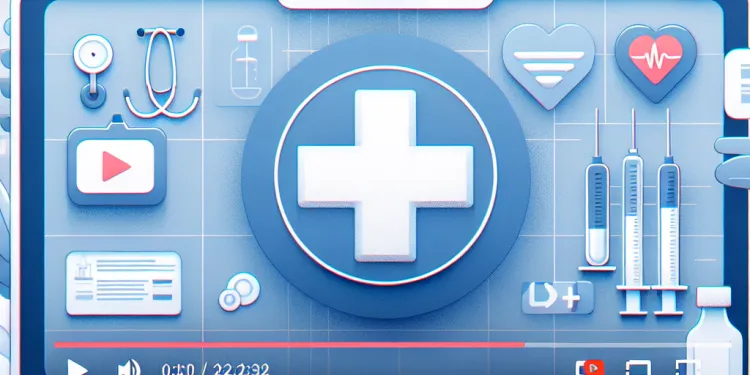
Understanding the NHS: How to Access Services
Relevance: 42%
-

Do I need a referral to receive medical treatment in the EU?
Relevance: 41%
-
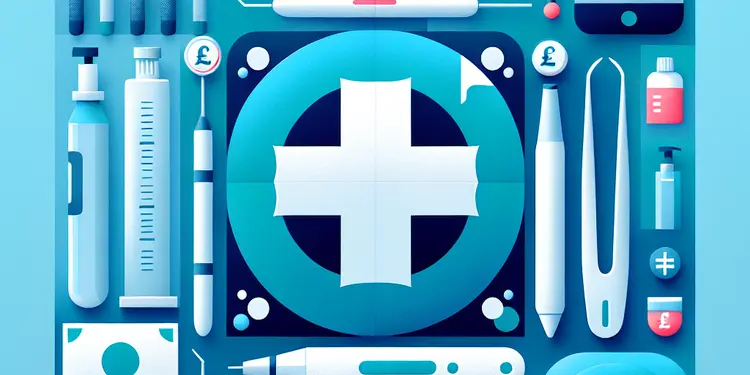
How can I find an NHS dentist?
Relevance: 39%
-

Can I get a dentist appointment on the NHS?
Relevance: 39%
-
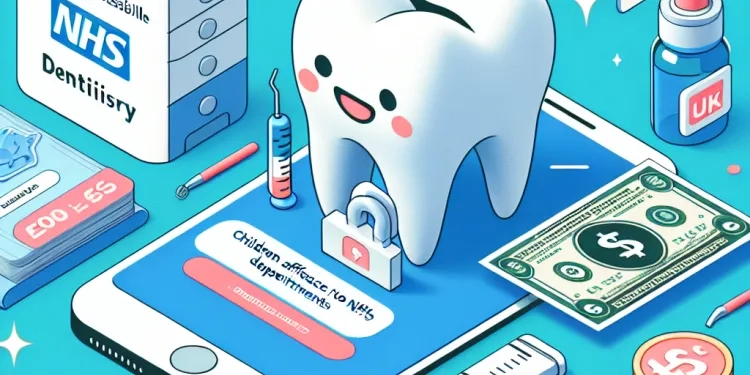
Can children get NHS dentist appointments?
Relevance: 38%
Overview of NHS Dental Services
The National Health Service (NHS) in the UK provides a range of dental treatments designed to maintain oral health and address various dental issues. These services are available to residents and are often more affordable compared to equivalent private treatments. However, it's important to understand what is covered under NHS dental care.
Types of Treatments Covered
NHS dental care includes numerous treatments that focus on the prevention, diagnosis, and treatment of oral health issues. The services generally fall into three categories: Band 1, Band 2, and Band 3 treatments. Each category has specific treatments covered under it, with associated costs for patients.
Band 1 Treatments
Band 1 treatments are designed for diagnostic and preventive care. They include examinations, diagnoses (such as x-rays), advice on oral health maintenance, and scale and polish if clinically necessary. The aim is to detect problems early and provide guidance to prevent future issues. Additionally, Band 1 covers the application of fluoride varnish or fissure sealants to protect teeth.
Band 2 Treatments
Band 2 encompasses treatments that address dental decay and other issues that require intervention beyond routine care. This includes fillings, root canal therapy, and tooth extractions. Band 2 treatments are necessary when issues like cavities or damaged teeth need more intensive treatment to restore oral health functionality.
Band 3 Treatments
Band 3 treatments involve more complex procedures that require laboratory work to provide dental appliances. These include crowns, dentures, and bridges. Such treatments are necessary when tooth restoration or replacement is essential for maintaining mouth function and appearance. Band 3 treatments ensure that patients requiring more substantial dental work receive the necessary appliances and support.
Emergency and Urgent Care
The NHS also offers emergency and urgent dental care. Emergency care is needed when there is severe pain, swelling, or uncontrollable bleeding. Urgent care is less severe but prioritizes time-sensitive care such as treating acute infections or abscesses. Both services aim to address immediate and potentially serious dental issues swiftly.
Exclusions
While the NHS provides extensive dental services, certain treatments may not be covered under NHS dental care. Cosmetic procedures such as teeth whitening or veneers that are not clinically necessary typically fall outside of NHS coverage. Patients seeking such treatments may need to explore private dental care options.
Conclusion
Understanding what the NHS covers within its dental services can help patients make informed decisions about their oral health care. While the NHS provides comprehensive dental services, some treatments may require out-of-pocket expenses or, in certain cases, private consultations. It is crucial for patients to discuss their treatment plans and options with their dentist to understand what is covered and any potential costs involved.
Overview of NHS Dental Services
The NHS in the UK helps with dental care. It offers different treatments to keep your teeth healthy and fix problems. It costs less than private dentists. It's important to know what the NHS covers.
Types of Treatments Covered
NHS dental care has treatments to prevent, find, and fix teeth problems. There are three types: Band 1, Band 2, and Band 3. Each has different treatments and costs.
Band 1 Treatments
Band 1 helps check and protect your teeth. It includes check-ups, x-rays, advice, and cleaning if needed. It also covers fluoride varnish and fissure sealants to keep teeth strong. These treatments find problems early and help stop future issues.
Band 2 Treatments
Band 2 fixes problems like holes in teeth and other bigger issues. This includes fillings, root canals, and taking out teeth. These treatments are for when teeth really need fixing to stay healthy.
Band 3 Treatments
Band 3 is for more difficult procedures. It needs lab work to make things like crowns, dentures, and bridges. These help if you need to replace or fix teeth to keep your mouth working well.
Emergency and Urgent Care
The NHS also helps if you have a dental emergency. This is when you have very bad pain, swelling, or bleeding that won't stop. Urgent care is for serious but less pressing problems, like bad infections. Both aim to quickly fix urgent dental issues.
Exclusions
Some treatments are not covered by the NHS. This includes cosmetic treatments like teeth whitening, which you don't actually need for health. For these, you might have to use private dental services.
Conclusion
Knowing what the NHS covers in dental care helps you decide how to care for your teeth. Some treatments might need you to pay extra or see a private dentist. Talk with your dentist about your options and any costs.
Frequently Asked Questions
What types of dental treatments are covered by the NHS?
The NHS covers a range of dental treatments including check-ups, fillings, crowns, bridges, dentures, and orthodontic treatments for certain cases.
Are routine dental check-ups covered by the NHS?
Yes, routine dental check-ups are covered by the NHS to help maintain oral health and prevent future problems.
Can I get fillings on the NHS?
Yes, the NHS covers both amalgam (metal) and composite (tooth-colored) fillings depending on the clinical need.
Does the NHS cover the cost of dental crowns?
Yes, crowns are covered by the NHS if they are clinically necessary.
Are dentures available through the NHS?
Yes, dentures are available and covered by the NHS if needed for dental health reasons.
Does the NHS provide treatment for gum disease?
Yes, the NHS covers treatment for gum disease to help control or prevent progression.
Is orthodontic treatment covered by the NHS?
Orthodontic treatment is covered by the NHS for children and young people under 18 who meet certain clinical criteria.
Does the NHS cover teeth whitening procedures?
No, cosmetic treatments like teeth whitening are not covered by the NHS as they are considered non-essential.
Are dental implants covered by the NHS?
Dental implants are rarely covered by the NHS and are usually only provided in specific medical cases.
Can I get an emergency dental appointment on the NHS?
Yes, the NHS provides emergency dental treatment if you need urgent care.
Are root canal treatments covered by the NHS?
Yes, root canal treatments are covered by the NHS if they are necessary to save a tooth.
Does the NHS cover wisdom tooth removal?
Yes, if removal is necessary due to issues like pain or infections, it is covered by the NHS.
Are children's dental treatments fully covered by the NHS?
Yes, dental treatments for children are fully covered by the NHS.
Can I get treatment for a broken tooth on the NHS?
Yes, repairs for broken or damaged teeth are covered by the NHS.
Are mouthguards for sports covered by the NHS?
No, custom sports mouthguards are typically not covered by the NHS.
Does the NHS cover dental sealants for children?
Yes, the NHS provides fissure sealants for children as a preventive measure.
Are there any charges for NHS dental treatments?
Yes, there are standard charges for NHS dental treatments unless you are exempt from payment.
Does the NHS provide sedation for dental procedures?
Sedation is available on the NHS for certain dental procedures when deemed necessary.
Are dental x-rays covered by the NHS?
Yes, necessary dental x-rays are covered as part of NHS treatment.
Can I receive treatment for orthodontic issues as an adult on the NHS?
Orthodontic treatment for adults is not usually covered by the NHS unless there are significant health needs.
What kinds of dental treatments can you get from the NHS?
The NHS helps people take care of their teeth. Here are some treatments you can get from them:
- Check-ups: The dentist looks at your teeth to see if they are healthy.
- Cleaning: The dentist cleans your teeth to make them nice and shiny.
- Fillings: If you have a hole in your tooth, the dentist can fix it.
- Braces: If your teeth are not straight, the dentist can give you braces to help.
- Tooth Removal: If a tooth hurts or is bad, the dentist can take it out.
- False Teeth: The dentist can give you new teeth if you need them.
If you are worried or unsure, you can bring someone with you. Also, you can ask the dentist to explain things slowly and use pictures. It is okay to ask questions if you do not understand.
The NHS helps pay for different types of dental care. This includes:
- **Check-ups**: When the dentist looks at your teeth to make sure they are healthy.
- **Fillings**: If you have a hole in your tooth, the dentist can fix it.
- **Crowns**: A special cover that goes over a tooth to keep it strong.
- **Bridges**: A way to replace missing teeth by putting new teeth between healthy ones.
- **Dentures**: False teeth that can be taken out.
- **Orthodontic treatments**: These help fix teeth that are not straight. This is only for some people.
Helpful Tip: Use pictures or videos to learn more about these treatments. They can make it easier to understand.
Does the NHS pay for regular dentist visits?
Going to the dentist to check your teeth is important. The NHS can help pay for these visits. Here is how it works:
- Some people get free dentist check-ups from the NHS. This can be young children, pregnant people, or those with certain benefits.
- Others might have to pay some money, but it is usually not a lot.
- It is a good idea to ask your dentist what the NHS covers for you.
If you need extra help, you can use:
- Ask a family member or friend to come with you to the dentist.
- Use simple phone or tablet apps that explain things about health.
Yes, the NHS pays for regular dentist visits. These visits help keep your teeth healthy and stop problems before they start.
Can I get fillings with the NHS?
Yes, you can get fillings on the NHS. Fillings help fix teeth with holes. They are important to keep your teeth healthy.
If you need a filling, go to a dentist and tell them you have a problem with your teeth. They will check your teeth and tell you what needs to be done.
You can use pictures or videos to help understand what happens at the dentist. Ask the dentist to explain things slowly if you need help understanding. It’s okay to ask questions!
Yes, the NHS can help pay for fillings. Fillings are used to fix holes in teeth. There are two kinds: metal and tooth-colored. The dentist will choose which one is best for your teeth.
Does the NHS pay for dental crowns?
The NHS can help pay for dental crowns. Dental crowns are special covers put on teeth to make them strong.
If you need a dental crown, the NHS dentist will tell you if it is covered. Sometimes there is a small fee you might pay.
If you find reading hard, ask someone to explain it to you. You can also use tools that read text out loud.
Yes, the NHS will pay for crowns if you really need them for your health.
Can you get false teeth from the NHS?
Yes, you can get dentures from the NHS if you need them to keep your teeth healthy.
Can the NHS help with sore gums?
Yes, the NHS can help if your gums hurt. You can go to a dentist. The dentist will check your mouth and teeth. They will tell you what to do next.
If you find it hard to read, you can use a tool that reads the text to you. You can also ask someone to help you understand. Remember to ask the dentist if you have questions. They are there to help you.
Yes, the NHS helps to treat gum disease. They want to stop it from getting worse.
Does the NHS pay for braces?
Find out if the NHS can help with braces. Braces help to straighten teeth. The NHS might help pay if you really need them for your health.
If you have questions, you can:
- Ask your dentist.
- Look on the NHS website.
The NHS pays for braces if a child or young person under 18 needs them for their health. They have to meet certain rules.
Can you get teeth whitening from the NHS?
The NHS is a health service in the UK. It helps people who are sick or need medical care.
Teeth whitening makes your teeth look whiter. The NHS usually does not pay for teeth whitening because it is not for health reasons, just for looks.
But if you have health problems with your teeth, talk to your dentist. The dentist can tell you if the NHS can help.
If you want whiter teeth for looks, you might have to pay. You can talk to your dentist to learn more. Dentists can also give you safe advice about whitening your teeth.
For help, you can ask someone you trust to read the information with you. You can also use tools like text readers, which read the information out loud for you.
No, the NHS does not pay for treatments to make teeth look whiter. This is because it is not something that is needed for health.
Will the NHS pay for new teeth in your mouth?
The NHS does not usually pay for new teeth implants. They only help with implants if it is really needed for health reasons.
Can I get a quick dentist appointment with the NHS?
If you have a dental emergency, you might need to see a dentist quickly.
Here are some tips:
- Call your regular dentist. They might have space for emergencies.
- If you don’t have a dentist, use the NHS website to find help nearby.
- You can call NHS 111 for advice if you are in pain.
Remember, it’s important to see a dentist if you are in a lot of pain or if something is wrong with your teeth.
Yes, the NHS can help if you have a dental emergency and need help fast.
Can you get a root canal treatment through the NHS?
Yes, the NHS can help pay for root canal treatments if you need it to keep your tooth healthy.
Does the NHS pay to take out wisdom teeth?
Yes, if you have to take something out because it hurts or is infected, the NHS will help you with it.
Does the NHS pay for all dental treatments for children?
Yes, the NHS pays for all dental care for children.
Can the NHS help fix a broken tooth?
Yes, the NHS can help if you have a broken tooth. You can go to a dentist and ask them to look at your tooth. They will tell you what can be done to make it better.
Here are some things you can do that might help:
- Find a local NHS dentist.
- Ask someone to go with you to the dentist if you feel worried.
- Write down any questions you have before you go.
Yes, the NHS will help fix broken or damaged teeth.
Does the NHS pay for mouthguards for sports?
No, the NHS usually does not pay for special sports mouthguards made just for you.
Does the NHS Pay for Children's Tooth Sealants?
The NHS helps look after teeth. Do they pay for a special coating on children's teeth called sealants?
Sealants protect teeth from getting holes.
If you need help reading, ask an adult or use a reading app.
Yes, the NHS gives special tooth covers to kids to help stop tooth problems.
Do you have to pay for NHS dental care?
Yes, you usually have to pay for NHS dentist treatments, but some people don’t have to pay.
Can you get medicine to help you relax at the dentist from the NHS?
You can get special medicine to help you relax at the dentist if it's really needed. The NHS can help with this for some dental treatments.
Does the NHS pay for dental x-rays?
The NHS might pay for your dental x-rays. It depends on what treatment you need. If the dentist says you need an x-ray, the NHS will usually pay for it.
If you have more questions, you can ask your dentist or someone you trust to help you understand. You can also use pictures or videos to learn more about x-rays.
Yes, the NHS pays for dental x-rays if you need them.
Can adults get braces or other treatments on the NHS?
Yes, adults can sometimes get braces or other help for their teeth on the NHS. But it depends on what you need. Not everyone will get it for free.
If your teeth problems make your health worse, you might get help on the NHS. You can ask a dentist for advice.
It is good to ask your dentist what you should do. They can help you find out if you can get this treatment on the NHS.
The NHS usually does not pay for adults to have braces or other orthodontic treatment. They will help if there are big health problems.
Useful Links
This website offers general information and is not a substitute for professional advice.
Always seek guidance from qualified professionals.
If you have any medical concerns or need urgent help, contact a healthcare professional or emergency services immediately.
Some of this content was generated with AI assistance. We’ve done our best to keep it accurate, helpful, and human-friendly.
- Ergsy carfully checks the information in the videos we provide here.
- Videos shown by Youtube after a video has completed, have NOT been reviewed by ERGSY.
- To view, click the arrow in centre of video.
- Most of the videos you find here will have subtitles and/or closed captions available.
- You may need to turn these on, and choose your preferred language.
- Go to the video you'd like to watch.
- If closed captions (CC) are available, settings will be visible on the bottom right of the video player.
- To turn on Captions, click settings .
- To turn off Captions, click settings again.
More Items From Ergsy search
-

What treatments are covered by the NHS dental services?
Relevance: 100%
-

What treatments are covered by the NHS dental service?
Relevance: 94%
-

Are there waiting lists for NHS dental treatment?
Relevance: 82%
-

What if I'm not satisfied with my NHS dental treatment?
Relevance: 81%
-

Can I use private dental services if I'm on the NHS list?
Relevance: 80%
-

Will Brexit affect my access to NHS dental treatments?
Relevance: 80%
-

Can I get cosmetic dental treatment on the NHS?
Relevance: 77%
-

Are there any extra charges for NHS dental treatments?
Relevance: 76%
-

How much will I have to pay for NHS dental treatment?
Relevance: 73%
-

Is sedation available during NHS dental treatments?
Relevance: 69%
-

Are NHS dental charges different across the UK?
Relevance: 65%
-

NHS Dental Charges Explained
Relevance: 63%
-

Are all dental appointments free on the NHS?
Relevance: 62%
-

Can I get an emergency NHS dental appointment?
Relevance: 62%
-

How do I choose the right dental clinic in Turkey?
Relevance: 61%
-

What if I need urgent dental care?
Relevance: 60%
-

Do I need to be a registered patient to get emergency NHS dental care?
Relevance: 60%
-

Can I get dental implants on the NHS?
Relevance: 59%
-

How long will I have to wait for an NHS dental appointment?
Relevance: 59%
-

Can children get free NHS dental care?
Relevance: 57%
-

Is it safe to get dental work done in Turkey?
Relevance: 56%
-

What languages do NHS dental clinics typically support?
Relevance: 56%
-

How do I know if I'm eligible for free NHS dental care?
Relevance: 54%
-

What happens if I miss my NHS dental appointment?
Relevance: 54%
-

Do NHS dentists cover cosmetic treatments?
Relevance: 54%
-

How often should I have a dental check-up on the NHS?
Relevance: 53%
-

What is the role of dental sealants in preventing tooth decay?
Relevance: 53%
-

How can I provide feedback about my NHS dental care?
Relevance: 52%
-

NHS 24 | How to get help for dental pain
Relevance: 52%
-

What should I bring to my NHS dental appointment?
Relevance: 51%
-

How do I know if my dentist offers NHS treatment?
Relevance: 51%
-

Dental Health: Tips for All Ages
Relevance: 50%
-

How are health services provided in prison?
Relevance: 49%
-

NHS 24 | Self-help tips for dental pain
Relevance: 47%
-

Can I get Turkey Teeth if I have existing dental issues?
Relevance: 46%
-

Understanding the NHS: How to Access Services
Relevance: 42%
-

Do I need a referral to receive medical treatment in the EU?
Relevance: 41%
-

How can I find an NHS dentist?
Relevance: 39%
-

Can I get a dentist appointment on the NHS?
Relevance: 39%
-

Can children get NHS dentist appointments?
Relevance: 38%


